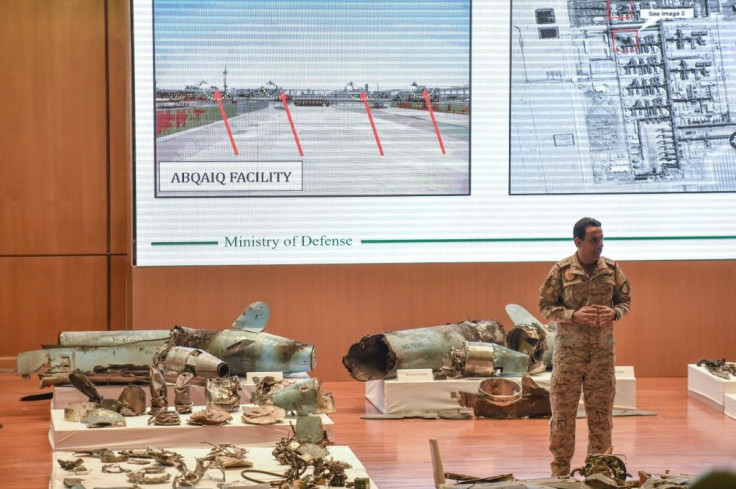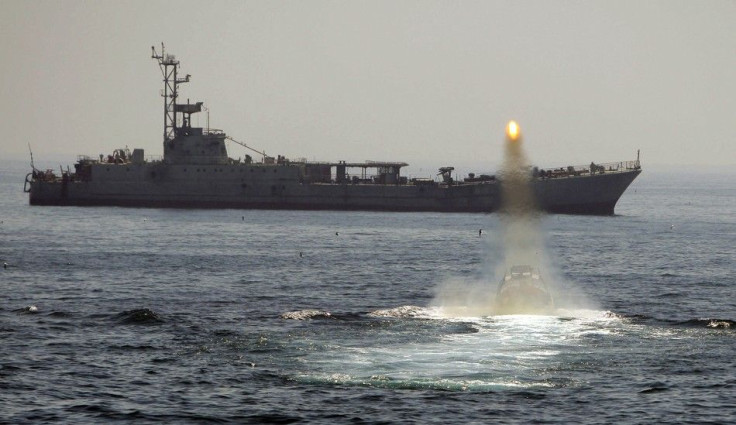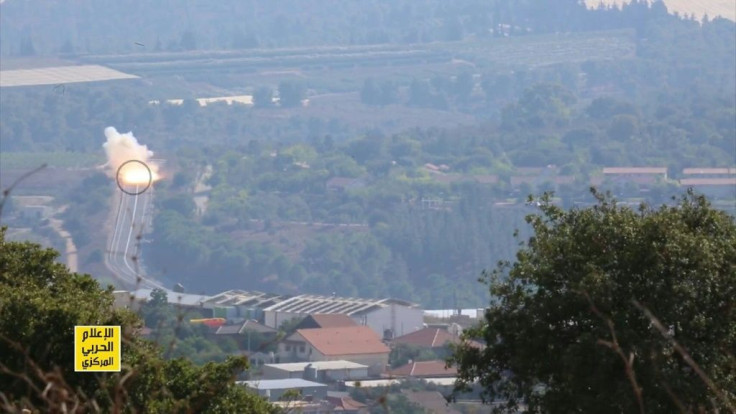War With Iran Would Be A Disaster With No Clear Victor: More Blood On The Sand, For What?

KEY POINTS
- War with Iran would be with missiles and naval resources
- China may limit the amount of damage that Iran can do to Middle East infrastructure
- Iran continues to bait the U.S. military at every turn
- War with Iran would cost trillions of dollars
- There would never be any clear victor if a war was to break out
The Middle East is always a hotbed of rhetoric and saber-rattling until something sets it off. Usually, the United States tries to stay neutral and keeps military troops of all types in place to deter terrorist attacks or military aggression. But what happens when rhetoric turns to actual aggression? Recent government sanctions by the United States in response to purported attacks on allied infrastructure in the region may have pushed Iran to the breaking point.
Some have said that President Trump's willingness to negotiate as opposed to relying on brute force to solve the dispute with Iran is morally outstanding. Others have called it a gamble. We may see the result of this very soon. The President appeared poised to begin military action not so long ago and stopped at the last minute after Iran shot down a U.S. drone. An uptick in attacks in the region has drawn the ire of the Chairman of the Joint Chiefs, who recently warned Iran to be “very cautious.”
An interesting political note that ties into this is that the leader of Israel Benjamin Netanyahu is embroiled in political controversy as is President Trump. Both leaders stand to gain a break from their domestic troubles in the event of a conflict. Besides, everybody knows that a good way to avoid a recession is to go to war.
The idea of war usually conjures up vivid images of infantry and tanks rolling in after a massive barrage of airstrikes. This is not what war with Iran would be. The U.S. currently has 70,000 troops in the region, not counting naval and special forces assets. That also means that there is a ton of equipment and munitions to go with them. Any action on the part of Iran or its proxies would be answered swiftly and decisively with any number, or type of, weapons.
There is no way that Iran could face the U.S. and its allies in a ground war. In the early stages of fighting, we would probably see salvos of missiles and other airborne munitions from each side. As recently as last week, it was reported that Iran had been sneaking weapons into Iraq and staging them on the outskirts of Baghdad. These missiles will be detrimental to U.S. troops in the region and quite possibly Jerusalem as they have a range of over 600 miles.

The best strategy for Iran would be to use asymmetrical warfare to fight any battle outside of an air war. Asymmetric warfare is best described as smaller units with less-sophisticated weapons conducting coordinated attacks on larger, more advanced targets.
The only reliable force that they have would be their navy. While there are a few large ships to contend with, the majority of their strength consists of Chinese and Russian made small attack boats that are capable of launching a variety of weapons, including cruise missiles. They may not seem like much of a threat but they are. A wargame simulation in 2002 indicated that Iran would be marginally successful using swarms of smaller craft. The results of the simulation showed the U.S. Navy losing 12 "major" ships. Larger naval vessels are often vulnerable to attacks from smaller, more agile watercraft.
Satellite imagery released Wednesday showed the USS Abraham Lincoln and its battlegroup being harassed by over 20 Iranian boats as they sailed through the Strait of Hormuz. Some of those boats were brave enough to come within 400 yards of the ships. This may have been a simple show of force, or it may have been a thinly veiled threat.

The region is in a state of turmoil as protests have rocked Iraq. Sentiment towards U.S. troops is at an all-time low in Iraq, and Iran is pushing the upheaval all while arming its proxy militias in the area, such as the Houthis in Yemen and Shiite militants in Iraq. Recent attacks on oil infrastructure in the region, kidnappings, and other attacks have all been blamed on these militias. U.S. and allied analysts have irrefutable proof that the attacks have come from inside Iran.
In the event of a conflict, China and Russia -- which also rely on fuel and other exports from the area -- may weigh on Iran to limit the damage it can cause to shipping and infrastructure. That is where cyberattacks and the use of their Quds troops would come in. Iran does not maintain an embassy in America, but it has several around the world. Each one of them houses Quds, or special operations troops. These forces are trained in the art of kidnapping and assassination.
The U.S. has many allies in the area, and Iran has warned that in the event of war, anyone that harbors U.S. troops or equipment would also be subject to attack. Israel shares a border with Lebanon, which hosts the Hezbollah who are anti-Israel and anti-U.S. while being sympathetic to Iran. They have a history of committing kidnappings and terrorist bombings, including the attacks on a Marine barracks in Beruit. In the event of a war, Israel can expect missiles to fly.

The reality is that in a war with Iran, there will be no clear victor. It is highly doubtful that Iran would “win” a war against the U.S.and its allies. It is equally questionable whether the U.S. would “win” anything other than destroying the nuclear program and the military of the nation. In any way, shape, or form, there would be a massive loss of life on both sides for no apparent purpose. It would be a vast waste of trillions of dollars and an equally heavy loss of life.
(Benjamin Minick writes on military and defense and is an operator with several years of experience in Middle East policy and military tactics.)
© Copyright IBTimes 2025. All rights reserved.






















